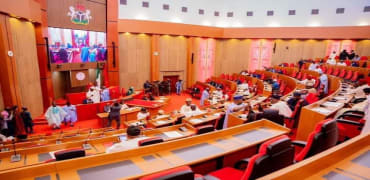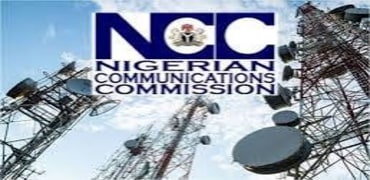Nigerians Plunge Into Darkness Again: National Grid Collapses For The 10th Time In 2024
Nigerians Plunge into Darkness Again: National Grid Collapses for the 10th Time in 2024
By Achimi Muktar
Nigerians were once again left in darkness as the national power grid suffered its 10th collapse this year, sparking widespread frustration across the country. The latest blackout, which occurred on Tuesday, November 5, left millions without electricity, raising concerns about the state of the nation’s power infrastructure.
At around 1:50 PM, power generation plummeted to zero, disrupting supply from all 22 power generation plants connected to the national grid. Earlier in the day, electricity output peaked at 3,934 megawatts but began to falter, leading to a complete shutdown by the afternoon. The Transmission Company of Nigeria (TCN) confirmed the collapse, citing "a series of lines and generators tripping" as the cause of the disturbance.
Ndidi Mbah, the TCN spokesperson, stated that while efforts were underway to restore power, parts of the grid were still operational, and restoration had begun in some areas, including the capital, Abuja.
"TCN engineers are working to quickly restore bulk power supply to affected states," Mbah said, adding that the grid was partially restored in Abuja at 2:49 PM.
The blackout has affected major cities and states across Nigeria, from Lagos to the southeastern region, where residents in Enugu, Anambra, and Imo States reported power outages. Electricity distribution companies across the country, including Ikeja DisCo, Abuja DisCo, and Ibadan DisCo, have all issued statements apologizing to customers for the disruption and assuring them that restoration efforts were in progress.
This collapse marks the 10th grid failure in 2024 alone, with three of these occurring within a single week in October. Despite billions in loans and investments into Nigeria's power sector, the grid's instability remains a critical issue. The country has secured over $4 billion in loans from the World Bank over the last decade in a bid to overhaul its electricity infrastructure, but the frequent blackouts continue to frustrate businesses and households alike.
In many parts of the country, hospitals, schools, and other essential services have been severely impacted by the blackout. In Yobe State, widespread outages have left cities like Damaturu in total darkness, while neighboring states such as Gombe, Bauchi, and Benue also experienced significant disruptions.
Experts have raised questions about the grid’s resilience, with some pointing to technical issues and inadequate maintenance as key factors behind the failures. Adeolu Taiwo, an energy analyst, said, “There’s been no comprehensive analysis on the causes of these collapses. We’re seeing issues with equipment failure, but no one is investigating the underlying technical problems."
Meanwhile, consumer rights advocates have decried the repeated collapses, criticizing the government for not doing enough to stabilize the grid. Princewill Okorie, the convener of the Electricity Consumer Protection Advocacy Centre, voiced concerns over the quality of materials used to build the grid and the lack of proper oversight.
The Minister of Power, Adebayo Adelabu, has repeatedly called for the decentralization of the national grid, advocating for regional grids to reduce the frequency of nationwide collapses. However, with the current state of Nigeria’s power infrastructure, many fear that more blackouts are inevitable until substantial reforms are made.
For now, millions of Nigerians are left hoping that power will be restored swiftly as the country struggles to maintain a stable electricity supply.
Stay tuned for further updates on the grid collapse and power restoration efforts.





















